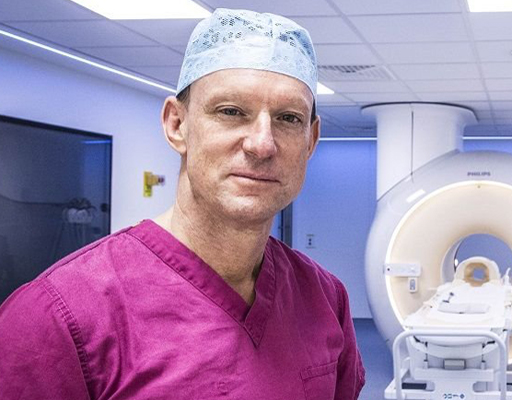Posterior fossa syndrome
Posterior fossa syndrome is a condition that’s made up of a number of different symptoms. It can sometimes be the result of surgery to remove tumours from the posterior fossa area in the brain. It develops in around 25% of children with medulloblastoma, with symptoms generally appearing one to three days after surgery.
On this page, we’ll discuss:
What is posterior fossa syndrome?
Posterior fossa syndrome symptoms
How long does posterior fossa syndrome last?
Is posterior fossa syndrome curable?
What is posterior fossa syndrome?
Your child’s neurosurgeon will explain the risks associated with surgery on their medulloblastoma, including a condition known as posterior fossa syndrome.
Surgery in the areas to the rear of the skull, also known as the posterior fossa or cerebellum, can cause long lasting negative effects in children.
These effects include loss of muscle tone, memory troubles, unsteadiness, and decreased ability to talk. These effects are collectively known as Cerebellar Mutism Syndrome (CMS) or Posterior Fossa Syndrome (PFS).
Posterior fossa syndrome symptoms
Posterior fossa syndrome symptoms can vary from child to child. The following symptoms are only a guide, but may include:
- weakness in one side of the body
- loss of speech
- difficulty swallowing (dysphagia)
- facial paralysis on one side
- poor balance (ataxia)
How long does posterior fossa syndrome last?
How long posterior fossa syndrome lasts can vary. But, symptoms can continue for months and in some cases years.
Generally speaking, children who have more severe symptoms not long after their surgery will tend to have posterior fossa syndrome for longer. But, this is not always the case. As mentioned, it depends on the child and how they respond to treatment.
Is posterior fossa syndrome curable?
Posterior fossa syndrome is certainly treatable. And, in many cases, the symptoms do greatly reduce or disappear with treatment.
Posterior fossa syndrome treatment depends on the symptoms that the child is experiencing and might include speech and language therapy, physiotherapy, occupational therapy, and psychological therapy also known as talk therapy.

Current research
Mr Mallucci and his team aim to further understand Cerebellar Mutism Syndrome (CMS), aka Posterior Fossa Syndrome, to help reduce the number of children affected by it and improve management of this condition.
Support and Information Services
Research & Clinical Trials Information
You can also join our active online community.
In this section

Get support
If you need someone to talk to or advice on where to get help, our Support and Information team is available by phone, email or live-chat.
Recommended reading
Share your experiences and help create change
By taking part in our Improving Brain Tumour Care surveys and sharing your experiences, you can help us improve treatment and care for everyone affected by a brain tumour.